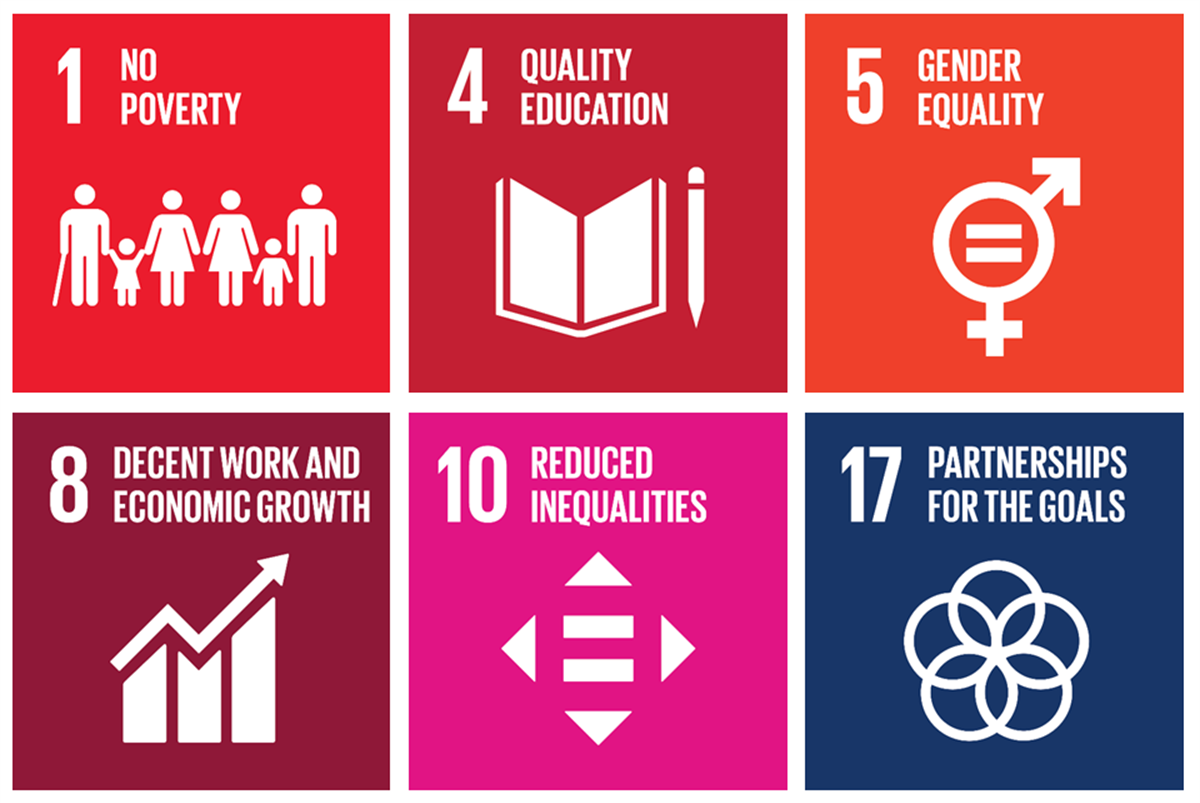Organized by the European Commission, the European Development Days (EDD) bring the development community together each year to share ideas and experiences in ways that inspire new partnerships and innovative solutions to the world’s most pressing challenges.
AVSI approaches EDD 2019's theme "Addressing inequalities: building a world which leaves no one behind" by presenting two win-win experiences based on synergies between non-profit and for-profit actors that use vocational training as a mean to overcome inequalities in Africa and Europe.
In Ivory Coast, AVSI collaborates with civil society organizations and local authorities with EU funds to support the work of 5,000 artisans focusing on women and HIV+ patients in project name. In Italy, AVSI and the food chain Panino Giusto, which created a network with some of the biggest Italian food and beverage brands like Lavazza, give refugees and asylum-seekers access to the labor market with fair conditions to integrate into society as part of “Cook to Restart”.
Both projects involve marginalized groups. In Ivory Coast: 5,000 direct beneficiaries are women, young adults with disabilities and HIV/AIDS patients. In Italy, 48 refugees and asylum-seekers were trained and 21 of them were hired in the last 2 years, thanks to the collaboration with 20 companies.
Through vocational training, inclusion, women empowerment, and exposure to more job opportunities, the projects are examples of the contribution that AVSI supports in the EU fight against poverty and discrimination within and outside Europe, while endorsing the European Pillar of Social Rights.
Meet the protagonists at our EDD stand 18 -19 June 2019 | Tour and Taxis | Brussels
At the AVSI stand, the general public will have the opportunity to meet Ivorian artisan, Coulibaly Kadidia, and a young refugee residing in Italy, Precious Mbonu and listen to their stories. This includes a showcase of handcrafted pottery, Kadidia’s core activity. While she shares her story, the public will be able to produce their own pottery. In addition, the public can meet AVSI program manager, Bamba Lassiné, and Panino Giusto HR Manager, Marcello Rola, who will speak about the success and on-going progress of the two highlighted projects.
About the projects
The interventions in Ivory Coast and Italy contribute to the achievement of the following SDGs:

#10 & #8 by increasing employment opportunities and income generating activities, reduces informal employment based on race, gender, or disability;
#1 promoting sustainable economic growth through decent work;
#4 ensuring quality education that answers to the job market demand;
#5 enhancing women's economic skills;
#17 bringing together LA, CSOs, the private sector and beneficiaries in win-win partnerships that generate new development actors to build a world that leaves no one behind.
Key measurable results / Ivory Coast
Thanks to the project “Appui à l’autonomisation des artisans de Côte d’Ivoire” AVSI supported 5,000 artisans directly, and raising awareness on labour laws thus allowing 55,000 artisans to access the labour market. The results:
- 20 local NGOs strengthened;
- registration to the Chambre nationale de métiers de Côte d'Ivoire of 50,000 artisans;
- formalization of 50 professional associations of craftsmen;
- practical support to 300 of the most vulnerable artisans;
- awareness-raising courses for 50,000 craftsmen on child labour;
- creation of 200 savings groups;
- education granted to 3,500 children and draft of 5,000 birth certificates for artisan families.
The most significant result was giving artisans the tools to improve their living conditions, becoming a model for other cities and contexts to adapt and adopt.
Key measurable results / Italy
In Italy (2016-2018), the 20 companies involved in “Cook to Restart” project trained 48 refugees and asylum seekers: of which 39 also had an internship and 21 were hired. The beneficiaries learned a job, gained technical and linguistic skills to integrate in the Italian society and rediscovered their value. The synergy between non-profit and for profit actors has ensured the project’s success.
The involvement of the private sector has set an example of virtuous best practice towards a model of inclusive business where NGOs and companies work together for a sustainable development.
More information
- How to reach our stand: EDD Village map
- Contact us: [email protected]
- Download the stand presentation
- Press release: Fighting inequalities? Work first, here and there